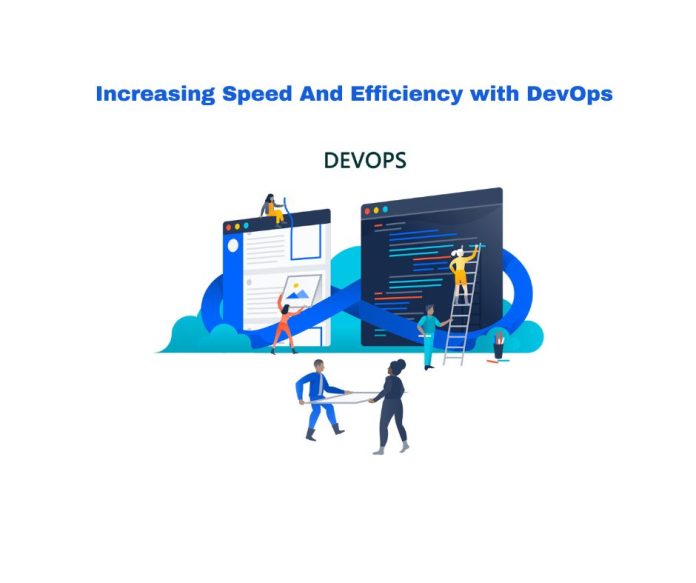Devops is a popular software development methodology that is making your it business more efficient. What is Devops, and how can it help you streamline your development process?
Devops is short for development operations, and it’s a hybrid approach to software development that aims to automate the software development life cycle (SDLC). This means that Devops helps to speed up the process by automating common tasks, such as code review and version control. It also helps to improve collaboration between different teams by establishing an infrastructure as code approach. This means that all the code that is used in the application is stored in a machine-readable format, which makes it easier for team members to collaborate and understand how the application works.
Another important aspect of Devops is utilizing CI/CD pipelines to deploy applications faster. With CI/CD pipelines, you can deploy applications using continuous integration and continuous delivery (CI/CD) processes. This helps to ensure that your applications are always up-to-date and available, while reducing human error with automated testing. Additionally, containers are being used more and more in modern DevOps environments because they allow developers to work with multiple versions of an application at the same time without having to worry about conflicts or incompatible configurations.
Finally, one of the most important aspects of any business is operational intelligence (OI). By implementing advanced analytics and machine learning into your DevOps environment, you can improve your ability to predict user behavior and make quick fixes when necessary. By doing this, you can keep your business running smoothly even during times of increased demand.
Accelerating Success With DevOps Strategies
DevOps is quickly becoming one of the most important technologies in the IT world. Not only does it help to speed up development and improve workflow efficiency, but it can also help to protect your data and improve security. DevOps is a combination of two key technologies – software development and operations. Together, these two disciplines help to create a continuous flow of information between developers and operators so that applications are built faster, with fewer errors, and with better overall quality. The DevOps Training in Hyderabad program by Kelly Technologies can help to develop the skills needed to handle the tools and techniques associated with DevOps.
Below, we’ll outline some of the key benefits of DevOps for your business. Once you understand how DevOps can improve your workflow efficiency and protect your data, you’ll be well on your way to accelerating success with this technology.
Improving Security And Reliability
DevOps is a practice that has been growing in popularity over the last few years. DevOps is short for development, operations, and security. DevOps is a collaboration effort between developers, operators and security professionals to improve the speed, security and reliability of an organization’s IT infrastructure.
DevOps has many benefits for businesses of all sizes. In particular, DevOps can help to improve the speed and reliability of development processes, as well as scale applications rapidly when needed. Additionally, DevOps can help to automate many of the manual tasks that are involved in developing and maintaining an IT infrastructure. This can lead to significant efficiency gains across all aspects of an organization’s business process.
There are many practical applications for DevOps beyond just improving IT infrastructure reliability and speed. For example, DevOps can be used to generate new product ideas rapidly or to streamline customer service responses. It can also be used to improve communication between different parts of an organization by automating data transfers and collaboration tools.
Integrating DevOPS into your current IT infrastructure is not easy – but it’s definitely worth it if you want your business to thrive in today’s competitive environment. To get started with DevOPS in your organization, there are some best practices that you will need to follow such as establishing clear goals and traceable performance metrics. Once you have mastered these basics, it’s time to explore some of the more sophisticated tooling available such as containerization or microservices architecture.
Automation And Continuous Integration In DevOps
Automation is one of the key pillars of DevOps – a software development process that aims to improve the efficiency and quality of IT systems. Automation has been shown to be an essential part of a successful DevOps process, and it can play a variety of roles in supporting software development.
One of the most important roles that automation can play is continuous integration. Continuous integration is a software development technique that involves checking the code changes made to your source code against previous versions to ensure that you’re making progress on your project without any errors. This helps to ensure that your code is stable and error-free, which leads to less time spent debugging and fixing problems later on.
DevOps also relies heavily on automation in order to keep your system running smoothly. Automation tools such as Puppet or Chef are used to automate tasks such as installing applications, configuring servers, or managing logs. By automating these tasks, you can reduce the amount of time needed for regular maintenance work, plus it allows you to focus on more important projects instead of mundane administrative tasks.
However, there are some challenges that come with implementing automation in your DevOps process. For example, you may need to make sure that everyone understands and agrees with all the automated changes that are being made. You may also need to address issues related to compatibility between different toolsets and platforms – something that’s often easier said than done! This article in the inrockry must have given you a clear idea about using automation correctly can dramatically improve the efficiency and quality of your IT systems.











